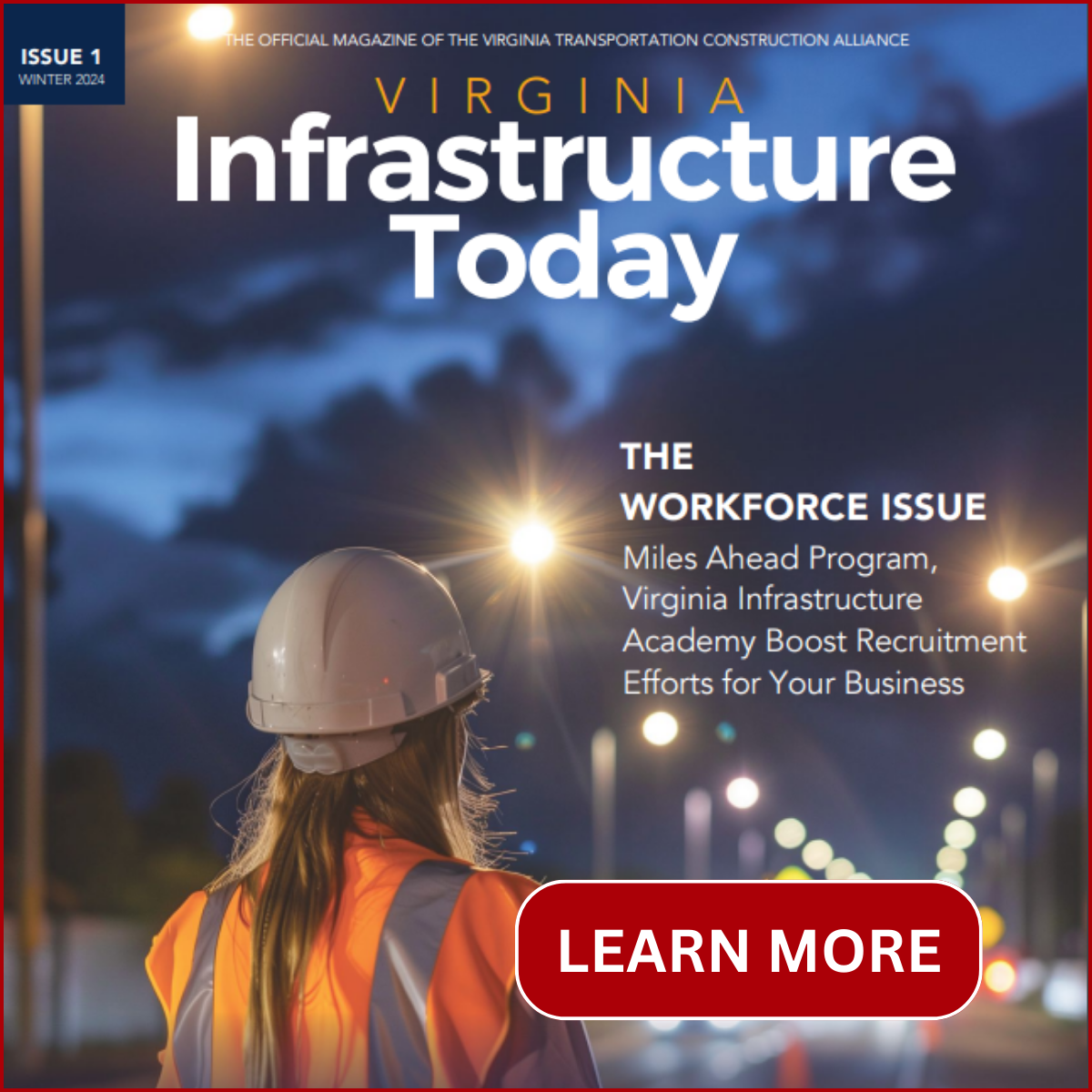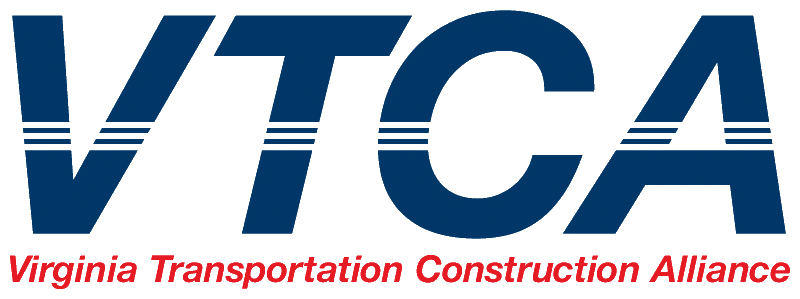VTCA's First Lobby Day is a Success!
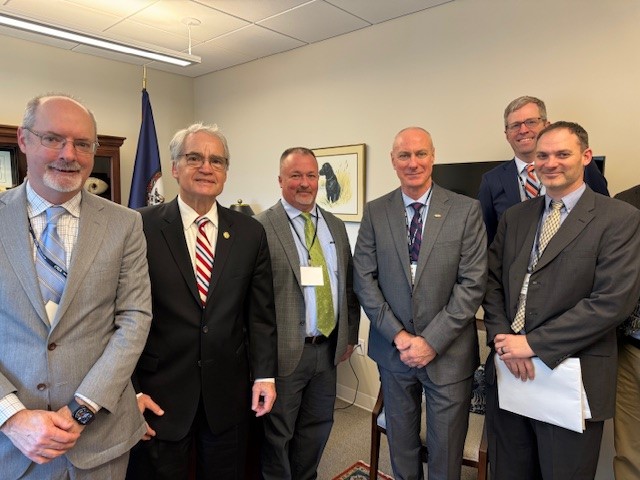 |
|
| VTCA Members meeting with Delegate Higgins. |
VTCA's first Lobby Day was a success with over two dozen attendees and 17 legislator visits. We discussed a multitude of items, as outlined below.
Sustainable Transportation Funding
Sustainable transportation funding is essential for ensuring safe, efficient, and equitable mobility for all. Safety is paramount in transportation infrastructure, and sustainable funding allows for the implementation of safety measures such as improved road designs, pedestrian-friendly features, and enhanced public transit systems. These investments not only reduce accidents and fatalities but also contribute to healthier and more livable communities.
Furthermore, sustainable transportation funding enables long-term planning and investment in infrastructure projects that consider the needs of future generations. By adopting a forward-thinking approach, we can address issues such as population growth, urbanization, affordability, and climate change resilience, ensuring that our transportation systems remain viable and resilient in the face of evolving challenges.
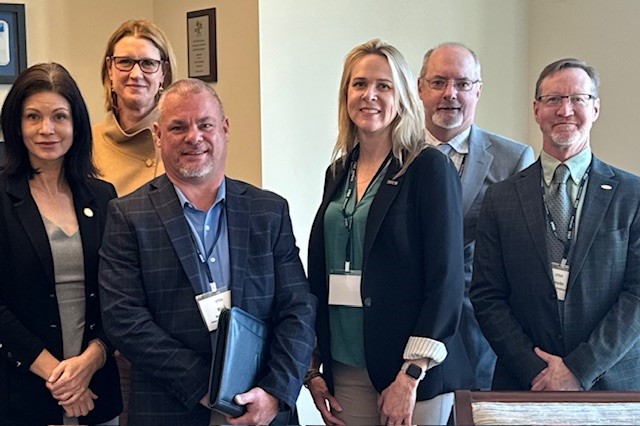 |
|
|
VTCA Engineer Members and Chair of the House |
Safety In Work Zones
We support Highway work zone measures like HB 282 (currently on second reading in the Senate) establishing a fine of $300 for a moving violation in a work zone when workers are present, and signs are posted. VTCA attendees shared a recent national study on Virginia’s Transportation Network: https://tripnet.org/reports/keeping-virginia-mobile-september-2023/.
We support photo speed monitoring in work zones which the VA State Police will implement in 2024 as a pilot.
Quality Based Selection & Alternative Delivery Procurement
Quality-based selection (QBS) for engineering services procurement in Virginia is in line with the principles outlined in the Public Procurement Act. The Act emphasizes fair and transparent procurement processes that prioritize quality, value, and public interest.
- Focus on Expertise and Experience: QBS ensures that engineering firms are selected based on their expertise, qualifications, and track record rather than solely on cost. This approach allows agencies to choose the most qualified firms capable of delivering high-quality projects that meet public needs and standards.
- Promotion of Innovation and Excellence: By emphasizing quality over cost, QBS encourages innovation and excellence in engineering services. Firms are incentivized to propose creative solutions, advanced technologies, and efficient methodologies that enhance project outcomes and public benefits.
- Likewise Alternative Procurement for Highway Construction adaptation to Project Complexity: In today’s complex and evolving infrastructure landscape, projects often require interdisciplinary expertise and collaboration. Alternative Delivery enables agencies to select firms with the specialized skills and capabilities needed to address the unique challenges of each project effectively.
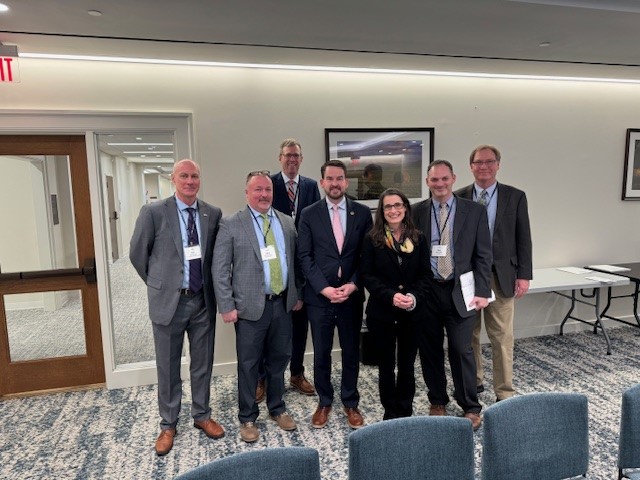 |
|
| VTCA with Senators Boysko and McPike |
Aggregate Economic Impact Study
VA Tech released a new study on the Economic Contribution of Construction Aggregate & Industrial Minning in Virginia.
Aggregate mining is local business. Most aggregate travels no more than 30 miles to its destination. Each person requires 40,630 pounds of minerals per year according to the US Geological Survey.
Localities continue to attempt to change zoning laws to deter or prohibit aggregate mining. If successful, all building material costs will go up significantly. Bills like HB84 – public notification of mineral mining will only make every project & affordable housing more expensive as aggregate mining will be more costly.
Mandated Project Labor Agreements (PLAs)
VTCA is not opposed to voluntary PLAs for the right project. Mandated PLAs are a pre-hire collective bargaining agreement that sets the wages and benefits for all workers on a project. The agreement is project-specific and only in effect for the project work. It guarantees that the project it applies to will use union labor (often a specific labor union).
PLAs are anti-competitive and go against Virginia’s Public Procurement Act which seeks maximum competition on procurement. Why? Over 96% of Virginia Construction firms are non-union, which means out-of-state construction firms and out-of-state union workers will work on Virginia projects. The 96% of Virginia firms doing current work cannot competitively bid on a PLA union project.
Mandated PLA’s prohibit ESOPs (Employee Stock Ownership Plan) whose employees are the owners from bidding on a mandated PLA.
PLA’s prevent minority firms (MBEs) who do not have large legal staff to negotiate the pre-hire collective bargaining agreement or the additional funding to become a signatory with a local union, each subcontractor must typically post separate payment bonds to each union, but many MBEs don’t have access to the capital to post these expensive bonds.
